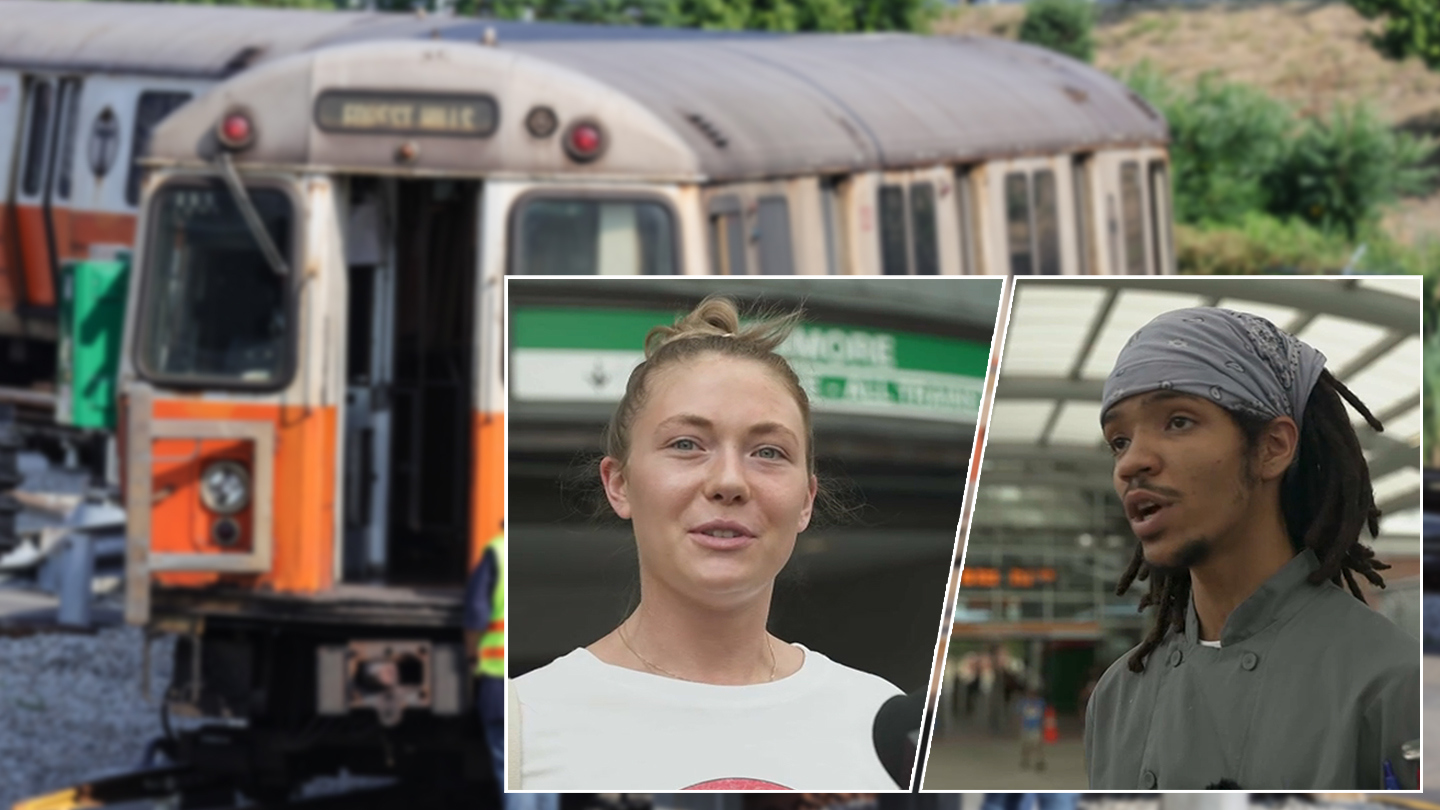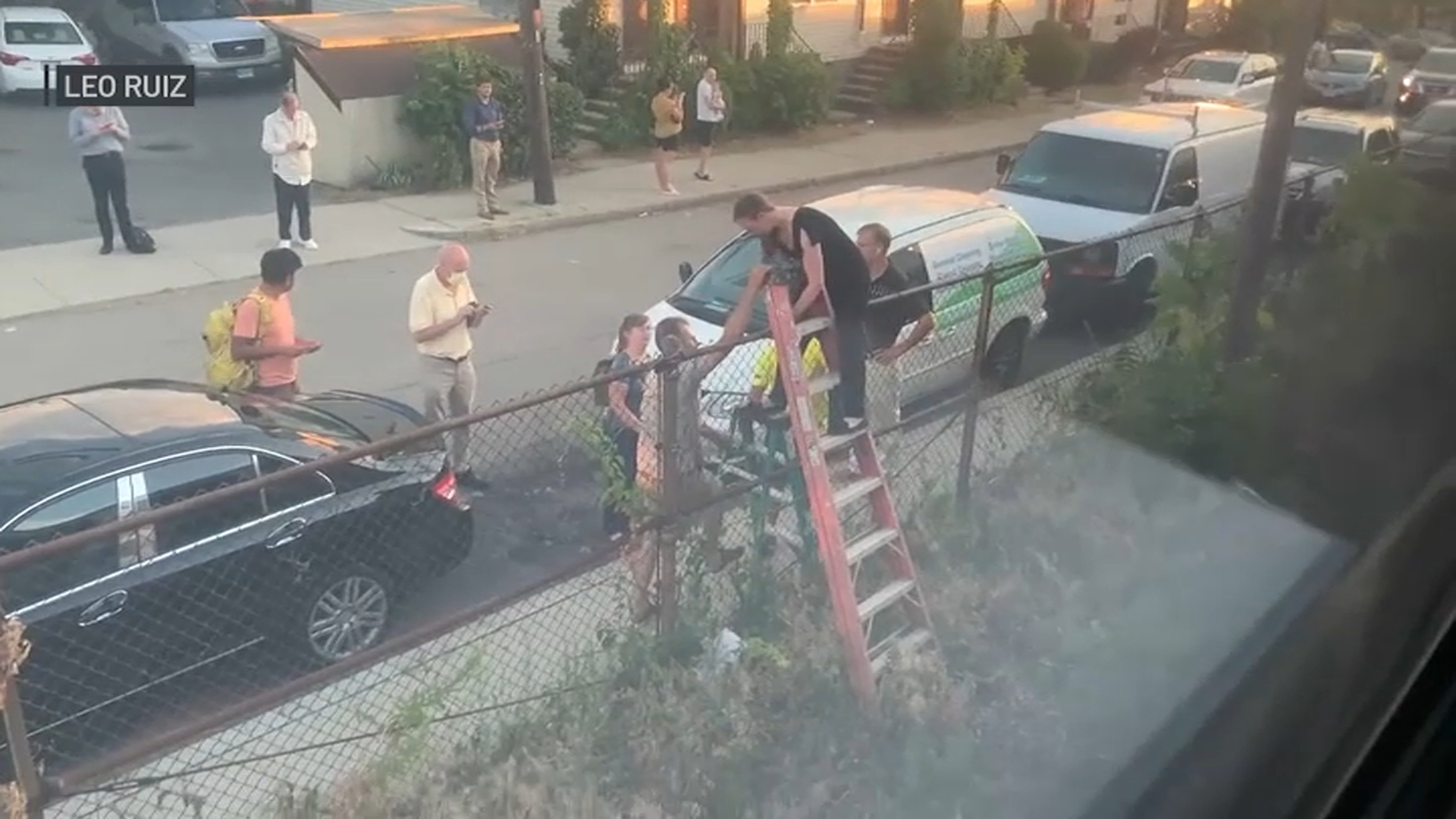The MBTA will venture into uncharted territory with a newly announced month-long shutdown of the Orange Line, and the unprecedented step might not be the last of its kind.
Baker administration officials kept the door open for additional large-scale closures when they announced plans Wednesday to shutter the entire Orange Line from one end to the other, starting Aug. 19 and running until Sept. 18.
MBTA officials in recent years have shut down branches of the Green Line from Kenmore to a western endpoint for maintenance and sizable chunks elsewhere on the network, but according to General Manager Steve Poftak, this will be the first time an entire line goes dark for this long.
"This is an unprecedented service diversion for the MBTA," Poftak said. "We have never shut down an entire line in this way in order to make sweeping improvements, but we're doing this because it's the fastest, most efficient way to deliver the benefits to our customers."
Get Boston local news, weather forecasts, lifestyle and entertainment stories to your inbox. Sign up for NBC Boston’s newsletters.
This unprecedented move comes as the T awaits the final Safety Directive report from the FTA’s months-long Safety Management Inspection, which is expected to be issued this month.
It’s the same process D.C.’s Metro system went through in 2015 before the FTA took over direct safety oversight of the beleaguered transit system.
“Our Metro system here in Washington was in bad shape," NBC4 Washington transportation reporter Adam Tuss said. "There were certainly so many safety issues that were being uncovered, that the Federal Transit Administration couldn’t just let it go."
Tuss said the nearly four-year-long takeover led to more permanent safety oversight with the institution of the Washington Metrorail Safety Commission.
“If these transit agencies don’t have that level of oversight, or don’t have that safety group who is right there looking at what they’re supposed to be doing, then a lot of these transit agencies can quite frankly fly by whatever rules they want to do," Tuss said.
Other maintenance projects are on deck for this fall, including closures of stretches of the Green Line's E Branch from Aug. 6 through Aug. 21 and its D Branch from Sept. 24 through Oct. 30. Those diversions will involve work to accelerate installation of anti-collision technology federal overseers first recommended more than a decade ago.
Another Green Line diversion is still in development. Poftak said its dates and scope are not yet final, but the work would focus on impacts of the Government Center garage demolition -- where a collapse and column damage created service headaches for the T -- as well as MBTA needs in the area.
Get updates on what's happening in Boston to your inbox. Sign up for our News Headlines newsletter.
Officials do not have plans in place for another end-to-end shutdown, but Poftak said Wednesday that might come at a later date.
"We reserve the right. I think this is something we're going to work on in real time," he said.
Their calculus expects that the upheaval caused by shifting tens of thousands of commuters to cars, buses, commuter rail or working from home will be well worth the long-overdue maintenance that workers can perform during those spans, particularly as the spotlight cast by the Federal Transit Administration's ongoing investigation grows hotter.
The FTA's safety management inspection served as the "impetus" for the upcoming 30-day Orange Line closure, Poftak said. In a batch of initial orders, federal overseers flagged delayed maintenance as a pressing issue for the agency, noting speed restrictions along portions of the Orange Line's track.
Baker often deflects criticism of his management of the MBTA by pointing to a substantial increase in the agency's capital spending, which goes to areas like maintenance and modernization, since he took office.
Sign up for our Breaking newsletter to get the most urgent news stories in your inbox.
He said Wednesday that the T has cut its state of good repair backlog "by about 50 percent" during his two terms, but stopped short of providing details on how much of the system is now in a state of good repair.
In May 2019, MBTA officials estimated it would cost $10.1 billion to replace all outdated equipment and infrastructure with modern alternatives. The agency has not published an updated analysis of that kind since then.
"I think there's a distinction between the system being in a modernized state of good repair and the system being safe. I believe the system is safe," Poftak said. "We've just recommenced an activity where we're going to make an assessment of how much of the system is in the state of good repair, and we'll be reporting out in the coming months."
While this stretch may feature the most intense scrutiny of the T since the disastrous winter of 2015, the governor insisted Wednesday that he continues to have confidence in Poftak and his team.
"The system was old and underfunded and unattended to eight years ago when we took office. I believe we've made tremendous progress on a lot of stuff over that period of time," Baker said, adding that the T has "done literally hundreds of projects to invest in the core system and modernize the operations" in that span.
Baker stressed that "the system needs work" while defending Poftak's tenure at the T.
"None of us should be satisfied until it works exactly the way it's supposed to. I'm not satisfied," he said, pointing to Poftak and to Transportation Secretary Jamey Tesler. "I know he's not and I'm sure he's not, and I know a lot of the riders aren't. But I get a report from these guys every week that tells me, daily, what was the actual rate of use on all of the lines, because I get nervous about things like crowding and whether or not we have enough trains running to satisfy the population that's riding them. I also get something that tells me every single week what the on-time performance looks like. The numbers in the on-time performance are far better than they were several years ago. They just are."



